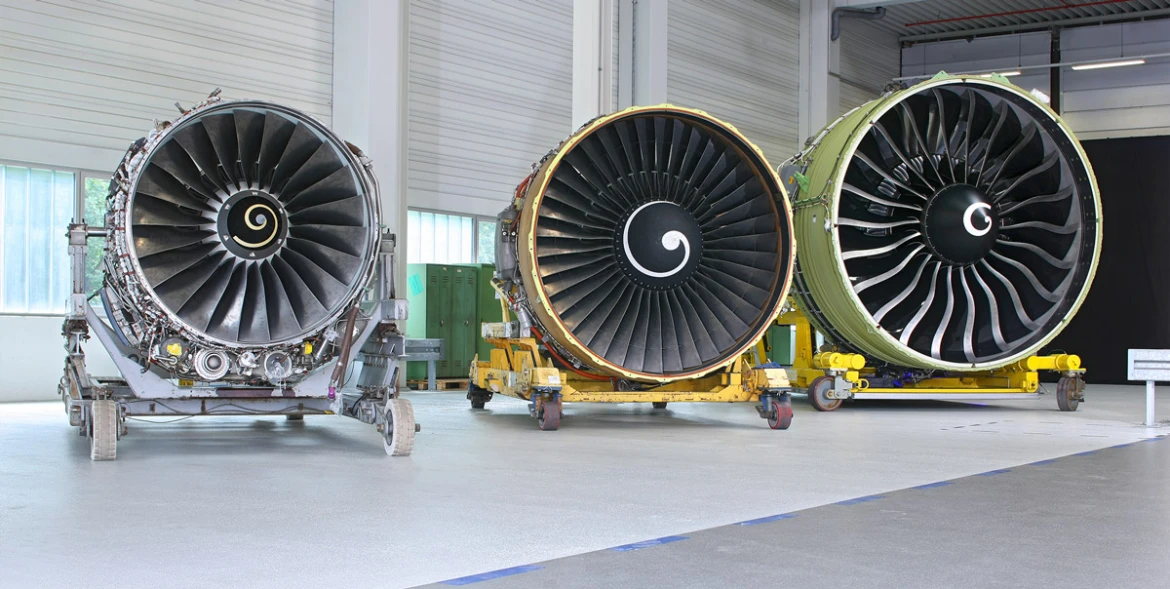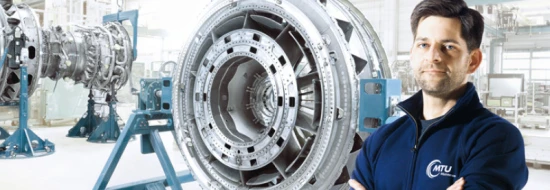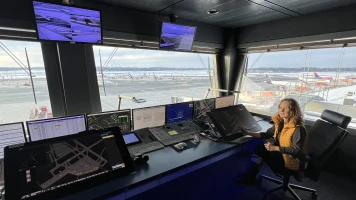people
The MTU engine leasing and asset management specialists
A conversation with Patrick Biebel, Managing Director of MTU Maintenance Lease Services, about current trends in the engine leasing market and asset management.
author: Nicole Geffert | 4 mins reading time published on: 06.04.2022
author:
Nicole Geffert
has been working as a freelance journalist covering topics such as research and science, money and taxes, and education and careers since 1999.

MTU Maintenance Lease Services B.V (MLS) is a specialist for engine leasing, asset management and technical consulting. Its customers—airlines and engine owners—benefit from comprehensive service solutions that set standards worldwide and are constantly being improved and developed. We talk to MLS Managing Director Patrick Biebel about increased demand for asset management services, the importance of short-term leasing, and even more closely integrated offerings with customized MRO services.
How did MLS come through the coronavirus crisis as a leasing and asset management specialist?
The global collapse in passenger aviation prompted aircraft operators to use replacement engines from their own grounded aircraft whenever they could. As a result, the demand for leasing engines collapsed, and customers quickly returned any engines they had leased for a short period. So the crisis brought the short-term leasing business—MLS’s main area of specialization—largely to a standstill.
The situation called for quick and decisive action, I guess?
Yes, that’s right. This is where our risk management paid off. We had deliberately kept the ownership structure of our leasing pool flexible. That’s to say, we are the owners of engines, but we’ve also taken out leases of our own on engines for short and longer periods or for certain customers. This gave us the scope we needed to actively respond to the changed demand situation. We were able to rely on our diversified business model, too. For example, when the cargo market was booming and people began converting passenger jets into freighters, we occupied the right niche and built up suitable engines for our customers—in the required thrust class, with the optimum remaining service life and at the right price. And so we managed not only to compensate for the leasing business slump, but actually put MLS back on a growth course.

“2021 was a record year in our asset management business. We made significant countercyclical investments in engines and materials, so that we can continue to offer our customers the best possible service solutions in the future.”
MLS Managing Director
Demand for MLS asset management services is higher than ever. What services are your customers looking for?
2021 was a record year in our asset management business. We made significant countercyclical investments in engines and materials, so that we can continue to offer our customers the best possible service solutions in the future. MLS is the perfect partner—especially for aircraft lessors. During the coronavirus crisis, many lessors were looking for cost-efficient alternatives to standard maintenance. Together with these clients, our experts came up with suitable solutions.
Can you give an example?
Yes, we supplied our customers with suitable replacement modules, for instance, so that they could keep their equipment airworthy in the medium term without having to make big investments. In addition, our exchange services were in high demand. This is where MLS buys an old engine from the customer and sells them a cost-optimized alternative in return. Since aviation is now on the up again, we’re increasingly offering aircraft lessors engines to buy, so that they can get their fleets back into shape and ready to market to the next lessee. Another offer we can make to lessors involves taking their currently unused engines into our leasing pool and marketing them to other MLS customers on a short-term lease basis. This generates liquidity for the lessors and gives us the opportunity to further expand our lease pool.
No sign of stagnation, then?
Not at MLS! We’re continuing to operate in an agile manner and are determinedly pursuing the goal of doubling our revenue over the next three years. We fully expect the demand for asset management services to remain at a high level. As such, we converted our representative office in Singapore, where many aircraft lessors are located, into a fully fledged subsidiary. This allows us to provide even more customer proximity and service.
MTU Maintenance Lease Services




Based in Amsterdam, MTU Maintenance Lease Services B.V. (MLS) was founded in 2014 and has successfully established itself since then in the fields of engine leasing, asset management and technical consulting. The company has been a wholly owned subsidiary of MTU Aero Engines since 2021. In leasing, MLS focuses on the short- and medium-term business. The company employs more than 50 people worldwide. In addition to its representative offices in Atlanta, Georgia and Dublin, Ireland, MLS has also expanded its regional presence in Asia. To this end, it converted its representative office in Singapore into a fully fledged subsidiary: MTU Maintenance Singapore Pte. Ltd. The services MLS offers are focused on the MRO engine portfolio of MTU Maintenance. They cover the popular CF34, CF6-80C2, CFM56, GE90, PW2000 and V2500 engine types, among others. In addition, the company is specialized in the management of these high-value assets and offers its customers—airlines and lessors—solutions tailored to their specific needs. For example, engines are either rendered fit for further years of service by replacing modules with limited service lives, or else MLS receives the engines that have reached the end of their service lives in payment and the customer buys or rents replacement engines. In addition, the MTU subsidiary offers its customers comprehensive support for their fleets—including technical consulting, fleet management, transition management, phase-out planning and the proper storage of engines.
What’s the trend like in engine leasing?
Engine leasing has been on the up again since the summer of 2021. MLS’s business is focused on leases with terms of between three months and two years. This short-term leasing bounced back from the crisis more quickly than long-term leasing. To protect their capital base, many operators and lessors began to lease engines instead of sending engines from their own fleet into maintenance when a shop visit was due.
Has this situation changed since?
Yes, we’re now experiencing another shift: the demand for short-term leasing is growing all the time, because many operators are faced with the need to ramp up strongly since business started to pick up again in the aviation sector. With maintenance measures deferred in some cases, a backlog has built up. Engines are coming into MTU Maintenance shops in greater numbers, and the customers need leasing engines to cover the maintenance period. MLS provides these leasing engines while the MRO experts at MTU restore the customer’s own engines.
These all-in-one solutions offer clear advantages to MTU customers.
Absolutely, and that’s why MTU is further integrating its entire range of services, so that MTU customers can benefit even more from innovative and cost-efficient comprehensive solutions. Since the end of 2021, MLS has been a wholly owned subsidiary of MTU Aero Engines. This lets us leverage our strengths even more effectively, which is one of the cornerstones of our growth strategy. In addition to leasing, asset management and technical consulting, MTU customers will enjoy even better support in the future with customized MRO service packages to get their fleets airborne.
And now, with the aviation sector is recovering from the coronavirus crisis …
That’s right, these integrated services are in greater demand than ever, particularly among lessors. After all, complete solutions always bring twofold benefits to customers: fewer interfaces and fewer risks on the one hand along with greater certainty, better scheduling and cost optimization on the other. This comprehensive range of services, which MTU can offer its customers worldwide thanks to its extensive MRO network, is a unique selling point and a real competitive advantage.sr






